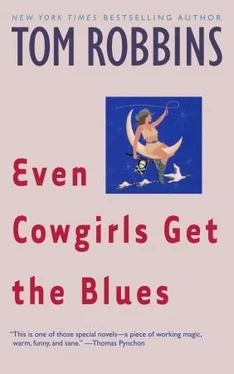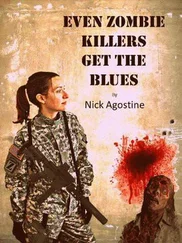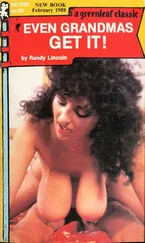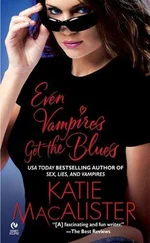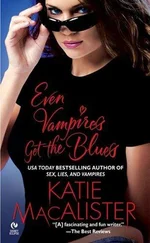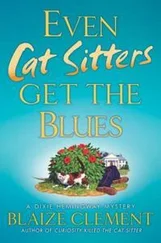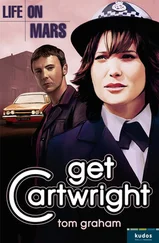“If you only had a thumb you could rule the world.”
COWGIRL INTERLUDE (BONANZA JELLYBEAN)
She is lying on the family sofa in flannel pajamas. There is Kansas City mud on the tips and heels of her boots, boots that have yet to savor real manure. Fourteen, she knows she ought to remove her boots, yet she refuses. A Maverick rerun is on TV; she is eating beef jerky, occasionally slurping. On her upper stomach, where her pajama top has ridden up, is a small deep scar. She tells everyone, including her school nurse, that it was made by a silver bullet.
Whatever the origin of the extra hole in her belly, there are unmistakable signs of gunfire in the woodwork by the closet door. It was there that she once shot up one half of an old pair of sneakers. “Self-defense,” she pleaded, when her parents complained. “It was a outlaw tennis shoe.
Billy the Ked.”
11.
SO SISSY LIVED IN RICHMOND, Virginia, in the Eisenhower Years, so called as if the passing seasons, with their eggs hatching and rivers rising, their cakes baking and stars turning, their legs dancing and hearts melting, their lamas levitating and poets doing likewise, their cheerleaders getting laid at drive-in picture shows and old men dying in rooms over furniture stores, as if they, the passing seasons, could be branded by a mere President; as if time itself could toddle out of Kansas and West Point, popularize a military jacket and seek election to Eternity on the Republican ticket.
In the croaked air of the Eisenhower Years in Richmond, Virginia, she must have been a familiar sight. In clothes that were either too big for her or too small — floppy coats whose hems rubbed the cement, summer slacks that disclosed everything anyone might wish to know about her socks — she moved through the city (the city of which it has been said, “It is not a city at all but the world's largest Confederate museum").
At all hours and in every weather the girl could be seen, if not admired.
Her soon-to-be-lovely features were still getting their sea legs and at that unsteady stage of their development must have clung clumsily to the bleached deck of her face (which, due to unusually high cheekbones, appeared as if it were pitched aslant in rough waters).
Her long, svelte body, as eloquently as it might assert itself, could not have been heard above the funky din of the clothing she wore.
Certainly her mind didn't count for much: in the sotweed suburb of South Richmond, no mind did. Few were the schoolmates to notice the headlight shine of her eyes and wonder who was driving around inside there.
When they said, “Here comes” (or “there goes) Sissy Hankshaw,” they meant “not a thumb more, not a thumb less.”
For wherever she went those wads of meat went with her; those bananas, those sausages, those nightsticks, those pinkish pods, those turds of flesh. She smuggled them around town in her baggy duds, launching them on appropriate corners and regarding them always as if they were manifestations of some secret she alone understood — although in the bank-vault air of the Eisenhower Years in Richmond, Virginia, they must have stood out like sore. .
(It is surprising that she was so faintly remembered in Richmond in later years. When the author asked the late Dr. Dreyfus about that, the surgeon replied: “According to the artist Michelangelo, 'The human figure is the ideal ornament for the niche.' I don't suppose that means very much to you.")
If, like the cat that looked at the world through mouse-colored glasses, she was rather insular, let it not be supposed that she was immune from indulging those heightened hormone flows and colored thoughts that, of all the trillions of visceral/cerebral reactions triggered by the limbic system of our trigger-happy brains, we single out to honor as “true human feelings.”
One day, one spring Thursday near the end of a semester, more than three years after she had been examined by Dr. Dreyfus and a few months after Madame Zoe's special knowledge had come her way, she was invited to a party. It was to be a costume party, given by Betty Clanton, a druggist's daughter and one of the more privileged kids in that roach-gnawed, white-trash school.
All day Thursday Sissy thought she would not attend Betty's party. All day Friday and Friday night (when she lay awake on three, yes, three pillows) she thought she would not attend Betty's party. But late Saturday afternoon, with an overtime sun nosing into everything and green froggies peeping and honeysuckle affixing a sweet faint hem to the golden pungency that hung like a curtain over the tobacco warehouses and a typewriter of birds banging out sonnets in the dogwood buds ( And wilt thou have me fashion into speech Ding! Line space. Carriage return. The love I bear thee, finding words enough Ding! The birds hacking it out) and spring in general coming on like a geometric progression, she began to get ideas. For the first time in her life, perhaps (although Sunday school had occasionally moved her and although Madame Zoe's bosom and the by-now-customary mobile molestings had certainly stirred her), she felt directed by forces other than her thumbs. She heard music that was not road music; her head swayed to rhythms that were softer and lighter than the rhythms of the hitch. Something in the springtime had telephoned something in her limbic system and reversed the charges. Something had touched Sissy Hankshaw and it doesn't matter what.
Sissy went out back and gathered feathers where her mama had recently deplumed a hen. Using electrical tape, she fashioned them — slowly and sloppily — into a kind of headdress. With Jerry's old watercolor kit, she painted herself as best she could, not neglecting at the last moment to paint her hands.
She went to Betty's costume party. She went as Chief Crazy Horse. She drank two bottles of Coke, munched a package of Nabs, listened to the new Fats Domino records, smiled at some jokes and left early. Only two thin rivulets streaked her warpaint to reveal how she felt when Billy Seward, Betty's boy friend and the most popular guy in school, bounded through the door, amid shrieks of laughter, wearing giant papier-mâché thumbs. Ach! Billy had come as Sissy Hankshaw.
12.
"WHEN YOU GROW UP with somebody you just sort of accept them, even if they are odd,” said Betty Seward née Clanton. She checked the coffeepot. It was still perking. Over and over the coffee turned in the pot. Its wheels sang in the interviewer's nostrils. They were singing a song of the past.
“I mean, she wasn't a freak, exactly, or a loony; she was a right smart girl and right polite and nice, but you know, she did have this peculiar development; but what I'm saying is, we got pretty used to it over the years, except that every now and then. .
“I remember the night we graduated from junior high. When your name was called you were supposed to get up and walk across the stage and take your diploma from the principal with your left hand and shake hands with him with your right hand. But Sissy wouldn't shake hands. Not even with the principal. It wasn't that she couldn't ; she just wouldn't. Mr. Perkins was pretty irritated. And a lot of the kids complained that Sissy was making a mockery of our graduation.
“There's an old abandoned rock quarry in South Richmond, all filled up with water, you know, and we used to swim there when we got the chance. The day after graduation our class was gonna have a picnic there — unchaperoned, weren't we devils? all on the sly — and some older kids who drove cars were gonna pick us up and take us. We were supposed to pick up Sissy, but just for spite we decided not to. We left her. Well, about noon somebody saw her out on the road catching a ride, hitchhiking like she did, big as life, not scared or ashamed but getting into any car that would stop for her, but she never showed up at the picnic. All day long she hitched up and down the road that runs near the quarry, up and down, back and forth, passing again and again. But she didn't ever stop; she just kept passing it by.
Читать дальше
